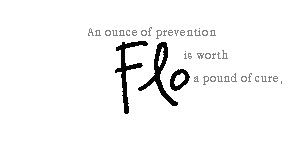Is honey truly a healthier choice? That is the question, but the answer is far from simple.
But what does the science say?
Both honey and sugar are considered simple sugars. This means they are quick energy sources, but do not provide any other nutrients or fiber. Both honey and sugar are made up of fructose and glucose. The difference between the two is that in sugar, glucose and fructose are chemically "hooked together," but in honey, fructose and glucose are separate. A little nerdy chemistry for you.
The caloric content of honey is actually higher than table sugar. One teaspoon of table sugar contains 16 calories, while one teaspoon of honey has 22 calories. This being said, you may actually take in about the same amount of calories because honey is denser than sugar and you will most likely consume less honey than sugar. Make sense? You may have to read that tongue twister a few times. Basically you need less honey to get the same effect as sugar.
The Glycemic Index for honey (55) is lower than sugar (68). Food with a low GI (a small increase in blood glucose), may reduce the risk of coronary heart disease and Type II Diabetes. Lower GI foods are better for people with Autism, ADHD, etc. But really, they are better for us all, none of us do well when our blood sugar is up and down! We should all use sugar sparingly and sweeten foods using low GI honey. Lower GI foods take longer to digest contributing to a lower spike in blood sugar, which leads me to my next thought...Honey is easier to digest. The bees secrete enzymes that divide the sucrose into two simple sugars, fructose and glucose. These sugars are directly absorbed by our bodies and are easier to digest. Sucrose (table sugar) passes through the stomach without any digestion happening because of its composition. The stomach can't break down the structure until it reaches the small intestine.
According to the American Dietetic Association (the gold standard for all things nutrition), the nutrients in honey and white sugar are similar. Neither honey or sugar are considered "nutritious." They are strictly simple sugars, with minimal vitamins, minerals, or fiber. The nutritional value is non-existent in sugar and extremely low in honey. For example, you would need 40 cups of honey a day to reach your daily iron requirements. Do you know how many calories that would be? A gazillion! There are many other health claims out there pumping up the benefits to honey, but they are usually brought forth by organizations trying to promote its consumption.
So that's the science, but here's my answer: It depends on who is asking.
If I'm talking with an overweight client, my answer is this:
Being overweight is far more concerning to me than deciding between honey and sugar. Substituting honey or maple syrup in your sweet treats or baked goods is not going to help you any. Do not be deceived to think that honey is magical or healthy. It is still loaded with calories and contains no nutritional value. Neither honey or sugar are good for you, and should be eaten sparingly. So if you are trying to lose weight, I would limit honey and sugar as much as possible, reduce your calories, and focus on getting your nutrients and antioxidants from fruits, vegetables, whole grains, and protein.
If I'm talking with a parent of a child with ADHD or Autism Spectrum, my answer is this:
Follow a diet that promotes liver and gut health. Sucrose can cause quick spikes in blood glucose levels, which your child's body may not be able to handle. Your child's liver may be unable to assist in the metabolizing of glucose, leading to mood swings and behavior issues. Limit sugars almost entirely, but when you need to choose, go for the sugars with a lower GI number.
If I'm talking to a Diabetic Client, my answer is this:
Be aware that honey isn't healthier for diabetics than sugar, so you should use the one that you like that taste better, but both should be used in moderation. Whether they come from sugar or honey, they will affect your bloodsugar about equally.
If I'm talking to anyone else, my answer is this:
The recommendation from the American Diabetes Association, Heart Association, and Dietetic Association are to reduce your sugar consumption, not to substitute it. The average American consumes around 22.2 teaspoons of added sugar each day, but the recommendation is MUCH lower than that. For adult women, the recommendation is 25 grams of sugar per day (5 teaspoons or 100 calories), for men 37.5 grams (9 teaspoons or 150 calories), and for children 12 grams (3 teaspoons or 50 calories). Whether it's honey or sugar, we shouldn't be eating much!
Bottom line is that both honey and sugar should be consumed in limited amounts. Honey (or maple syrup, agave nectar, etc) may have a slight edge, but excess consumption of either is a bigger danger to our health than the advantage of choosing one over the other.
Now. If you'll please excuse me while I go eat my Girl Scout cookies...



No comments:
Post a Comment